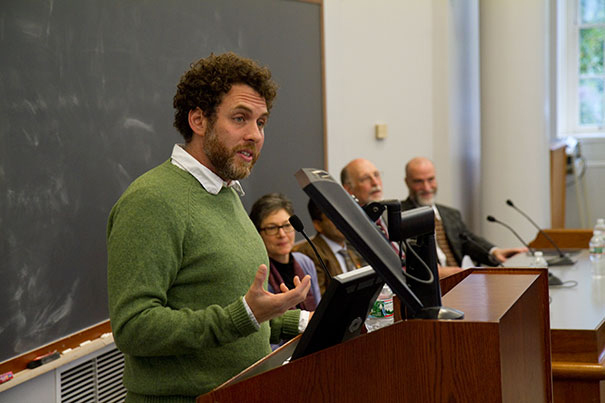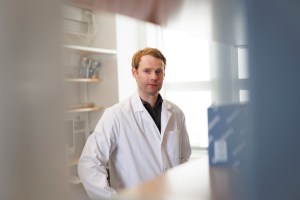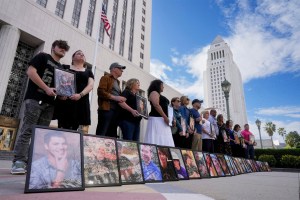Campus & Community
-

Tracing Harvard’s ties to slavery: Recovering names and histories
Researchers delve into probate records, tax lists, and estate inventories to identify enslaved people
-

Ballot order set for Overseer and HAA director elections
Candidates finalized ahead of spring voting period
-

Kicking back with Rose Byrne
Australian actress feted, roasted as Hasty Pudding Woman of the Year
-

What’s the greatest love song of all time?
Faculty and administrators tell you theirs
-

Of different faiths, but connected by belief
Community members gather to explore identity, spiritual experience at first ‘Across This Table’ interfaith dinner
-

Batman returns — to accept his Pudding Pot
Michael Keaton feted as Hasty Pudding’s Man of the Year, 30 years after first invite
-
Harvard leads in Fulbright awards
Harvard is the leading producer of Fulbright Scholars for 2013–14, with 44 students — 32 from Harvard College and 12 from the Graduate School of Arts and Sciences — receiving the prestigious grants to conduct research or teach abroad. Of the 44, 39 accepted the awards.
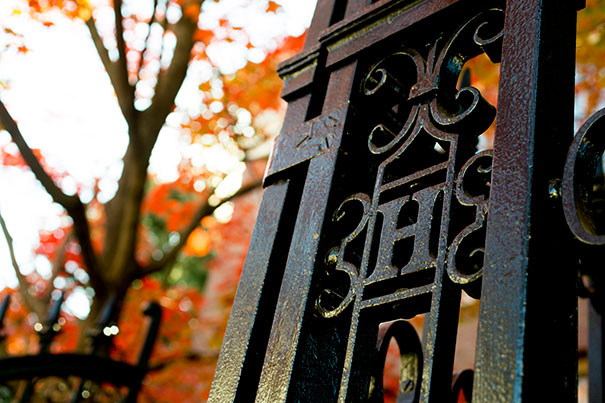
-
Professor Robert R. Bowie dies at 104
Robert R. Bowie, the Clarence Dillon Professor of International Affairs Emeritus and founder and first director of the Center for International Affairs (now the Weatherhead Center for International Affairs) died Nov. 2 at the age of 104.
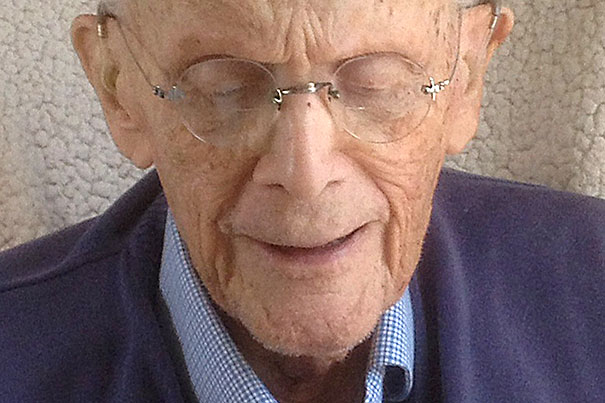
-
HDS gives thanks for its harvest
Harvard Divinity School held its annual Harvest Celebration, giving thanks for the bounty of its community garden.
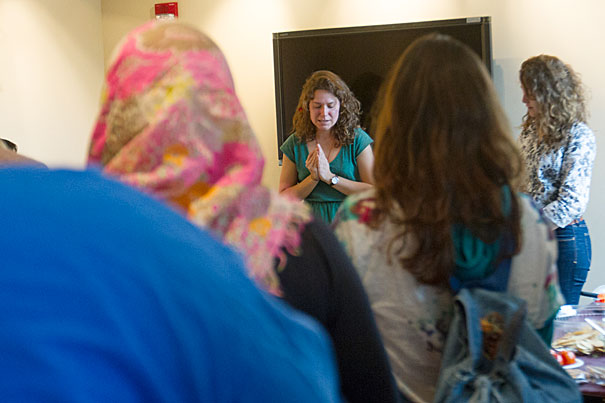
-
Fighting prejudice by admitting it
Everyone is prejudiced, said a conference speaker. But there are ways to undermine and manage it.
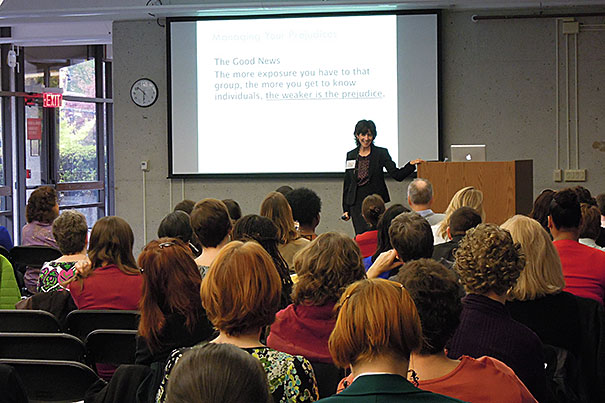
-
Taking talking leaves
There are those Harvard curios that are fleeting and ephemeral and free: principally the fallen leaves that every autumn tourists and passers-by tuck into pockets and bags as mementos of a place, Harvard Yard, that shimmers with meaning and history.
-
Progress report
Harvard College interim Dean Donald Pfister and President Drew Faust welcomed the families of first-year undergraduates to campus Nov. 1 for the start of Freshman Parents Weekend, the annual two-day program of lectures, tours, and open houses.
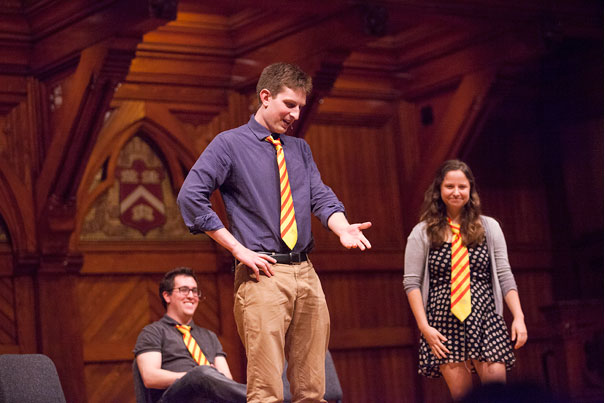
-
Women’s soccer captures 11th Ivy League Championship
Capturing its 11th Ivy League title, and fourth over the past six years, Harvard women’s soccer beat Dartmouth, 2-1, on Saturday afternoon at Soldiers Field Soccer Stadium.
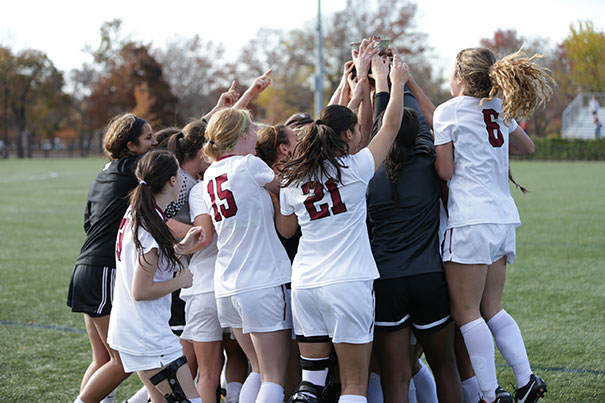
-
Sox title strikes right note
An organist of 11 years for the Red Sox, Harvard library assistant Josh Kantor serenaded fans deep into the night after the team’s World Series win.
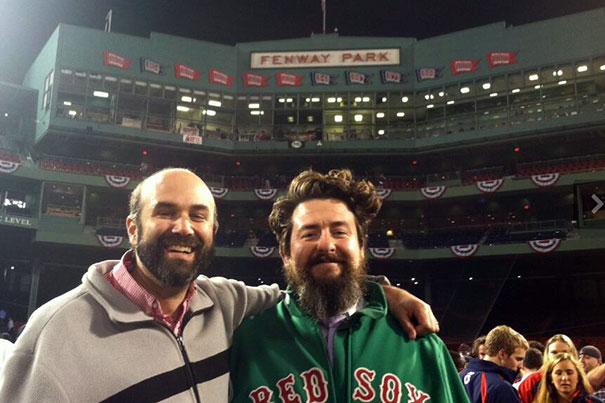
-
Associate chief diversity officer named
Norm J. Jones, who has had a long and distinguished career in academic diversity, compliance, and inclusion, has been appointed the associate chief diversity officer and deputy director in the Office of the Assistant to the President for Institutional Diversity and Equity.
-
Carving out a winner
The Class of 2017 got creative for the annual freshman pumpkin-carving contest. Entries were on display at Annenberg Hall just in time for Halloween.

-
Faculty Council meeting held Oct. 30
On Oct. 30 the members of the Faculty Council heard a report on the Study of Religion and updates on the Division of Continuing Education, Advances in Learning, and Title…
-
Next up for renewal: Winthrop
Winthrop House is expected to be the next undergraduate residence in Harvard College’s House system to be renewed.

-
A boost for city students
Alumni from the Crimson Summer Academy discussed the importance of the Harvard program in opening doors to confidence and college.
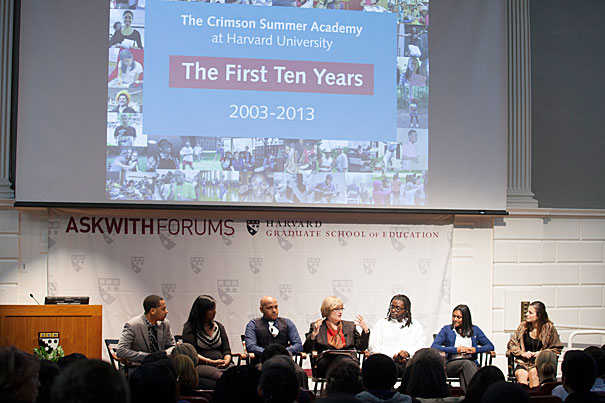
-
Fresh approaches in teaching
Incorporating hands-on, experiential learning with rigorous classroom study is the sort of innovative approach that Harvard has striven to support in recent years, the sort that will play a central role in the Harvard Campaign for Arts and Sciences.
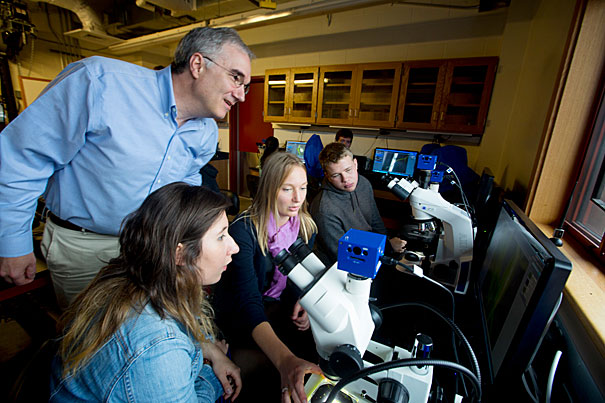
-
Corporation transitions planned for 2014
William F. Lee, A.B. ’72, will become the Harvard Corporation’s senior fellow next summer, succeeding Robert D. Reischauer, A.B. ’63, the University announced today.
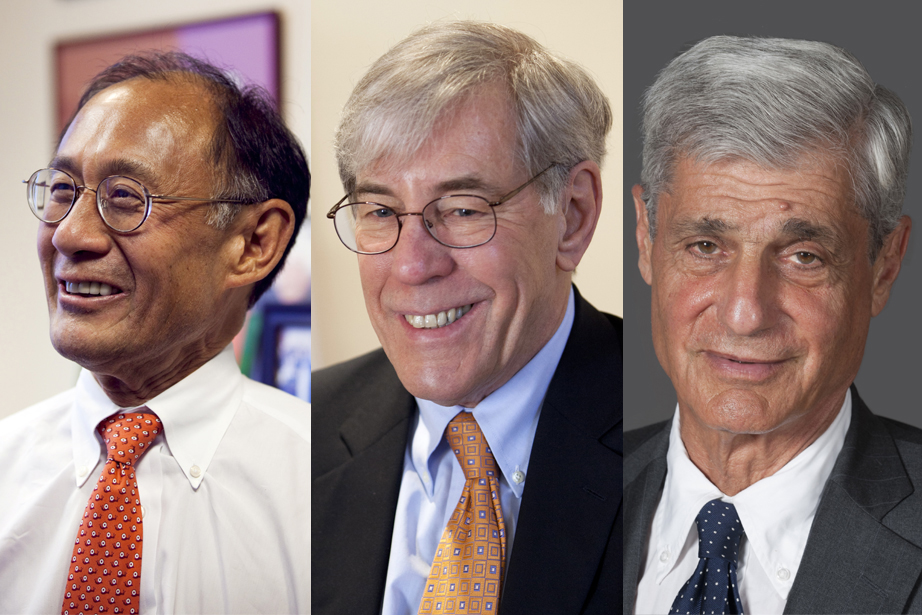
-
Donovan receives Coles Award
Harvard President Drew Faust presented the annual Robert Coles Call of Service Award on Friday to U.S. Secretary of Housing and Urban Development Shaun Donovan.
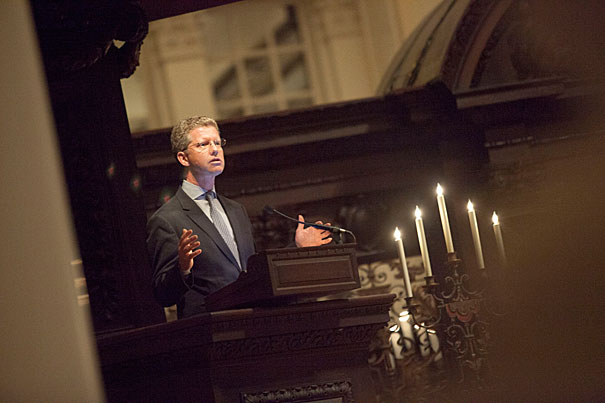
-
The start that comes with aid
Approximately 60 percent of Harvard College students receive need-based scholarship aid, and 20 percent of families pay nothing. To keep Harvard College affordable for students from nearly every financial background, funding for this program is one of six top priorities in the Faculty of Arts and Sciences’ Capital Campaign.
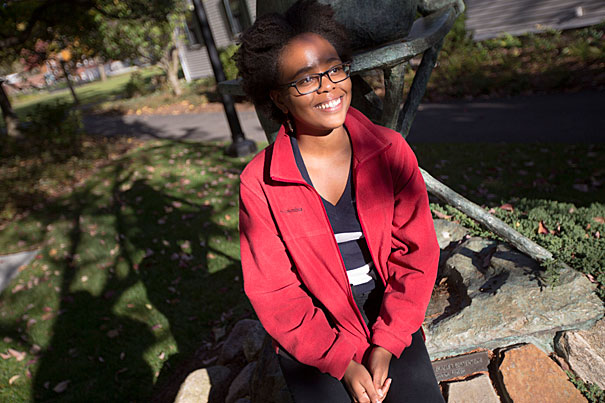
-
Harvard launches Arts and Sciences campaign
FAS Dean Michael D. Smith formally launched the $2.5 billion Harvard Campaign for Arts and Sciences on Saturday morning at a standing-room only alumni event at Sanders Theatre.
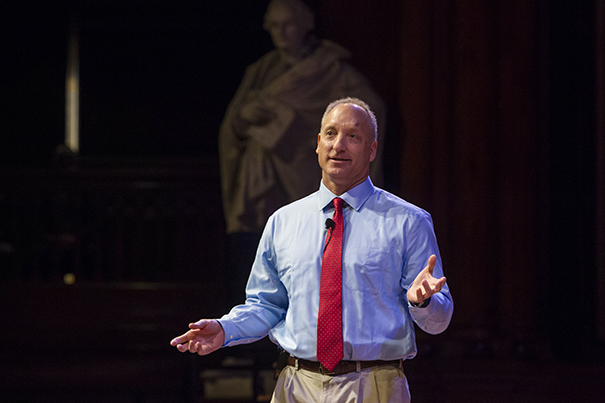
-
Collaboration key in health gains, Clinton says
Former President Bill Clinton, at the Harvard School of Public Health to accept a Centennial Medal, hailed the networks active through the global health community as critical to gains made in recent decades.
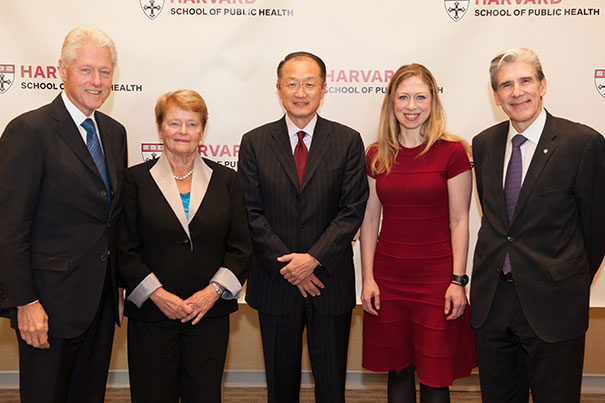
-
Making the Harvard College Connection
Harvard College today announced a new initiative to encourage promising students from modest economic backgrounds to attend and complete college. It will use social media, video, and other Web-based communications, along with traditional forms of outreach, to connect high school students to Harvard and to other public and private colleges.
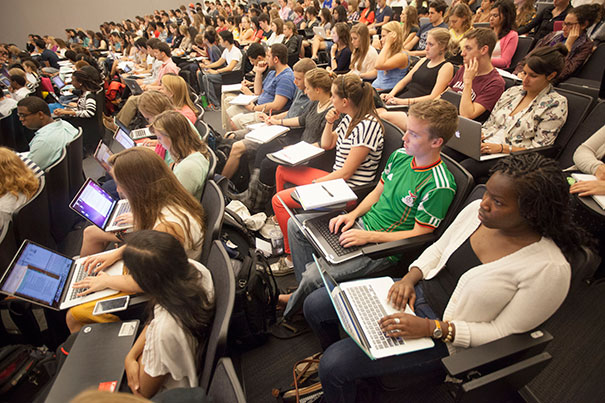
-
Top-notch teachers
Edo Berger, the John L. Loeb Associate Professor of the Natural Sciences, and Anne Pringle, an associate professor of organismic and evolutionary biology, have been named the recipients of the 2013 Fannie Cox Prize for Excellence in Science Teaching.
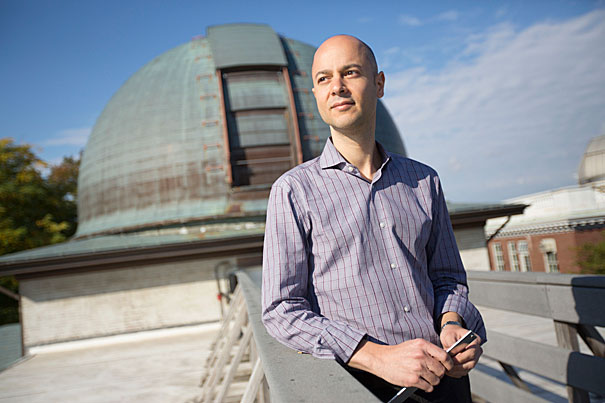
-
Macrofied
The close-up perspective of the macro lens turns everyday surfaces into dynamic landscapes.

-
The games off the field
Harvard welcomed 700 of its neighbors from Allston, Brighton, and Cambridge to the annual community football program on Saturday.

-
Nine named 2013 Cabot Fellows
Nine professors in Harvard’s Faculty of Arts and Sciences have been named Walter Channing Cabot Fellows. The 2013 honorees were awarded for their distinguished publications.
-
American Academy announces 233rd class
Harvard scholars are among 164 influential artists, scientists, scholars, authors, and institutional leaders who were inducted into the American Academy of Arts and Sciences at a ceremony in Cambridge on Oct. 12.
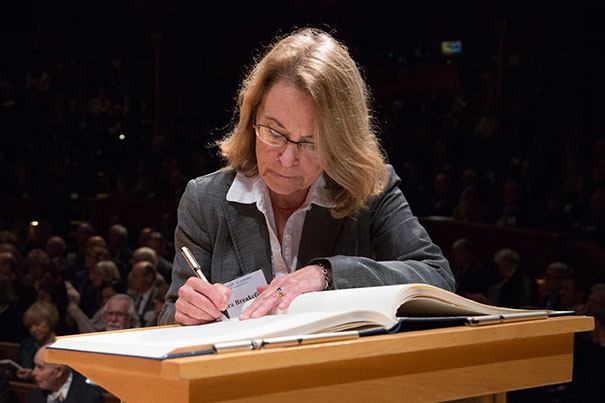
-
BRA approves Allston development plan
The Boston Redevelopment Authority (BRA) on Oct. 17 unanimously approved Harvard’s 10-year development plan in Allston, giving the initial green light to seven new building projects and two major renovations.

-
Faculty Council meeting held Oct. 16
On Oct. 16 the members of the Faculty Council heard a review of the life sciences concentrations and discussed library journal pricing. They also heard an update on the development…
-
Hidden Spaces: Emerson Chapel
In Emerson Chapel, where Ralph Waldo Emerson delivered his groundbreaking 1838 Commencement address to the Harvard Divinity School (HDS), a small group of students sat quietly on yoga mats and…

-
Howard Gardner: ‘A Blessing of Influences’
One of an occasional story in which Harvard faculty members recount their early influences, Howard Gardner recalls the mentors who helped to shape his early academic career.
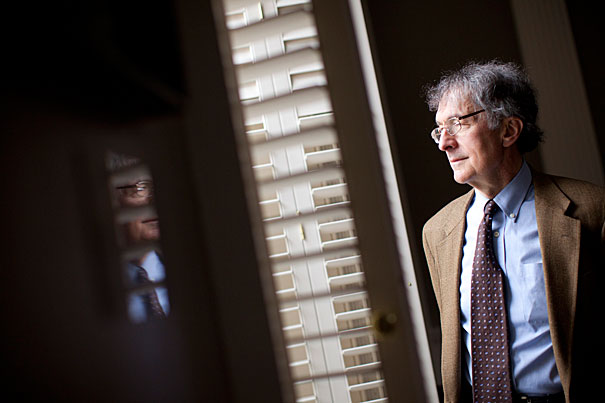
-
Outlining academic integrity
A panel of faculty led a discussion about academic integrity with an audience of undergraduates, staffers, administrators, and other faculty members. This session was the first in a series of community-wide discussions on the topic.
